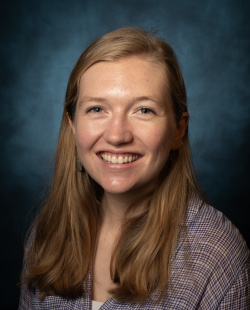
 back to all PhD profiles
back to all PhD profiles
Caroline Beckman

Caroline studies how communities respond to environmental threats. With a focus on climate adaptation, she seeks to explore how people understand specific environmental hazards and what factors promote health-protective behavior during climate events, particularly wildfires, extreme heat, and wildfire smoke events. Her dissertation work focuses on understanding how individuals in the rural US West consider and respond to variable hazard conditions, through the lens of extreme smoke events. In the past, she has worked on mixed-methods research projects covering a range of topics including ocean conservation behavior, land conservation, air quality, and Tribal environmental health. Before coming to SEAS, Caroline worked as a community organizer and program manager at Climate Resilient Communities, a community-based organization in the San Francisco Bay Area working with frontline residents experiencing wildfire smoke, extreme heat, and flooding.
Bachelor of Science in Earth Systems, Stanford University, 2021
Beckman, C., Wheaton, M., Sawe, N., & Ardoin, N. M. (2023). Incorporating justice, equity, and access priorities into land trusts’ conservation efforts. Biological Conservation, 279, 109926.
Herbert, N., Beckman, C., Cannedy, C., Cao, J., Cho, S. H., Fischer, S. L., Huang, S., Kramer, S.J., Lopez, O., Lopez, S.S., Ouyang, D., Suckale, J., Wulf-Saena, V., Zhang, Z., & Wong-Parodi, G. (2023). Improving adaptation to wildfire smoke and extreme heat in frontline communities: Evidence from a community-engaged pilot study in the San Francisco Bay Area. Environmental Research Letters.
Herbert, N., Beckman, C., Vera, K., Coles, E., Kim, T., Cho, S. H., & Wong-Parodi, G. (2025). Bridging incremental to transformative hazard management strategies on the Tule River Indian Reservation. Environmental Research: Health, 3(1), 011002.

